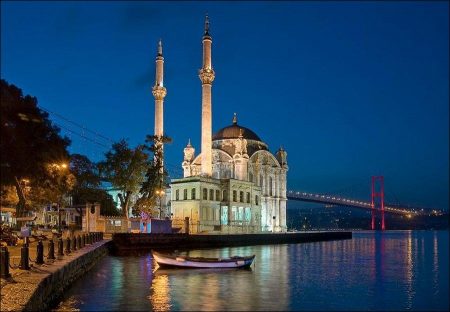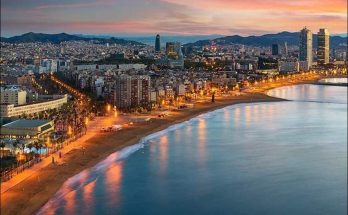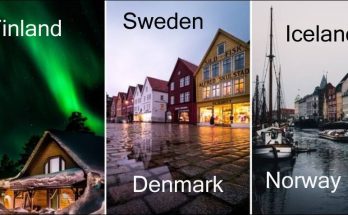No matter how you travel to Istanbul, your first view of the city will be impressive. It rises beside the blue waters of the Golden Horn and Bosphorus rivers into a dramatic skyline of domes and minarets. The narrow Bosporus, a drowned former river valley, down which a strong current still flows from the Black Sea, divides Asia from Europe. Its shores are protected by the rising upland against cold winds, and get more rain than the surrounding uplands.
Accordingly these exhibit a different kind of vegetation from that of the steppes, typically Mediterranean but with more trees than elsewhere. The dark cones of cypress trees, the pink of Judas trees, and the yellow of locusts, together with the blossoms of fruit trees, join with an exuberant display of flowering herbage and with the songs of innumerable nightingales to make the shores of the Bosporus truly entrancing in the spring. Olive trees are excluded by the winter frosts, but snow never lies more than a few days.
Almost three thousand years old, it has been the heart of three world empires and each one has left its own particular mark on the landscape. Though no longer the capital of the Turkish Republic, Istanbul is still the most popular destination in Turkey for tourists and many tour operators offer short break holidays here, especially in winter. Basically, Istanbul divides into two main areas which are further subdivided into several small districts. The European part of the city is divided by the Golden Horn and the European and Asian parts are separated by the Bosphorus Strait. The vast majority of the sights are on the southem bank of the Golden Horn.
Istanbul is a good centre for sightseers, as there is an infinite variety of places to visit – peaceful mosques, awe-inspiring palaces and frenzied bazaars. For sun-worshippers there are beaches and resorts along the Bosphorus and the Sea of Marmara, and while here, all tourists should consider a trip to the legendary city of Troy. Even if you plan to travel further into Anatolia, take a few days to see some of the sights of this fascinating city and experience the unique atmosphere it offers.
Istanbul is located where a small drowned tributary valley enters the southern end of the Bosporus and offers a safe harbor called the Golden Horn. Founded originally as the Greek settlement of Byzantium, this city, which was once the greatest in the world, became the capital of the Eastern Roman Empire. Then for centuries it was the stronghold of southern European culture against the forces of Asia. Later the invading Turks held it as their capital and made it the center of their empire.
The catastrophic World War brought about its temporary decline, but despite the loss of its European hinterland, and the removal of the capital to the more centrally located city of Ankara, Istanbul is coming back. It could not be otherwise. Dominating the trade routes between the Black Sea and the Mediterranean, where the old Danube roads cross over into Asia, the location has advantages of which it can never be deprived.
The population is on the increase again, and there is every reason to think that Istanbul will hold a place among the cities of over a million. In Istanbul, unlike the rest of Turkey, both Greeks and Armenians still live in large numbers, although not so numerous as formerly.
Views: 220



